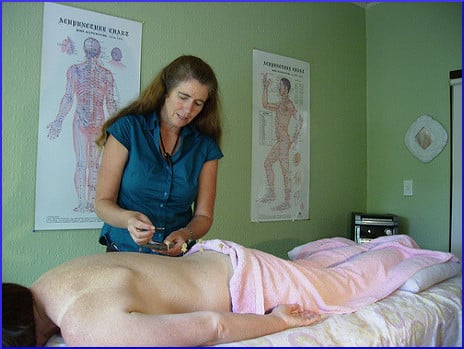
Last time, Childhood Obesity News looked at research indicating that in the pursuit of weight loss, “soft science” factors like a human support system and attention from a caring professional might be more effective than calorie counting. This is all part of the phenomenon called the placebo effect, explained as the generic term for good outcomes that stem from the context of the doctor-patient encounter and the “ritual of treatment.”
The placebo effect […] is characterized as representing the interpersonal component of healing, as distinct from spontaneous natural healing and technological healing dependent on physiologically active pharmaceuticals or procedures.
The communicative interaction of practitioners with patients, both verbal and nonverbal, may produce placebo effects even without the use of discrete treatments.
Those sentences are quoted from a 2009 publication with three authors (Dr. Franklin G. Miller of NIH, Dr. Luana Colloca of Turin’s National Institute of Neuroscience, and Dr. Ted J. Kaptchuk of Harvard’s Osher Research Center) who emphasize the importance of the doctor-patient relationship. They go further than that, and assert that research such as theirs “has the potential to revitalize the art of medicine.”
The paper discusses at great length the difference between disease (biological dysfunction that affects the organism) and illness (the lived experience of the person affected by the disease). The authors emphasize that the placebo effect does not kill germs or knit bones, which are in the realm of biological dysfunction. The placebo effect operates on illness, to alleviate such symptoms as pain, anxiety, and fatigue, and it does a heck of a job.
Sham and verum acupuncture
For instance, one trial recruited more than 1,000 subjects with chronic low back pain, and divided them into three groups. Some were treated with genuine — or “verum” — acupuncture. Some were treated with fake — or “sham” — acupuncture, which they believed to be the real thing. Those groups both had 10 treatments (or “treatments”) of 30 minutes each, over a five-week period.
The third group got traditional physiotherapy, and pain meds as needed. The improvement rates were 48% for the real acupuncture, 42% for the fake acupuncture, and a measly 27% for the “usual care” group.
The authors go on to say that over the past 30 years, lab research has shown that “placebo interventions can elicit quantifiable changes in neurotransmitters, hormones, and immune regulators.” Brain imaging has shown that neurobiological mechanisms are at work and “placebo analgesia is mediated by release of endogenous opioids.”
This will blow your mind
The paper reports in great detail on another experiment in which subjects with Irritable Bowel Syndrome (known as a “difficult-to-treat patient population”) were divided into three groups. In one group, the participants received no treatment at all, but were included and followed under the pretext of being on a waiting list. The other two groups both received sham acupuncture — that is, the simulated or fake kind — twice a week for three weeks.
In other words, it was not a question of whether acupuncture works or not, because nobody had real or “verum” acupuncture. The researchers wanted to know what would happen when IBS patients believed they were being treated with genuine acupuncture.
So, why two groups of sham acupuncture recipients? This is the interesting part. The two categories were treated differently in terms of social intervention. In the group called “limited,” the interactions between patient and practitioner started with only a five-minute talk at the first session, and remained brief and business-like throughout. The other group, called “augmented,” had a lot of attention lavished upon them, beginning with a generous 45-minute initial interview “structured to be supportive and empathic and to promote positive expectations…”
The subjects were questioned at the end of the three-week treatment course, and again at a follow-up three weeks later. The results? Adequate symptom relief was reported by 62% of the “augmented” group — the ones who got fake acupuncture and plenty of attention.
Adequate symptom relief was also reported by 44% of the “limited group” — who also got fake acupuncture, but minimal attention. Even in the waiting list group, 28% of the subjects felt better. They experienced therapeutic benefit from nothing but anticipation, and knowing that somebody cared.
Your responses and feedback are welcome!
Source: “The placebo effect: illness and interpersonal healing,” NIH.gov, Autumn 2009
Photo credit: Wonderlane via Visualhunt/CC BY

 FAQs and Media Requests:
FAQs and Media Requests: 











